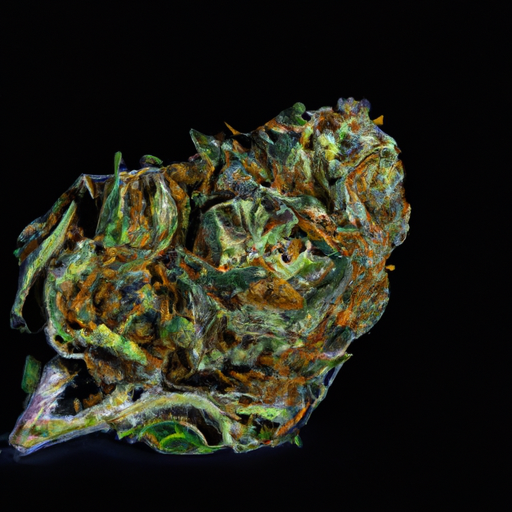Do you ever find yourself struggling to get a good night’s sleep? Well, you may be interested to know that the use of hash, a concentrated form of cannabis, has been linked to its sleep-inducing effects. Many individuals claim that consuming hash before bed helps them relax and drift off into a peaceful slumber. However, it is important to consider the potential drawbacks and risks of using hash as a sleep aid. In this article, we will explore the impact of hash on sleep patterns and discuss whether it truly does make you sleep a lot. So, let’s dive in and uncover the truth behind this common belief.
The Effects of Hash on Sleep
Inducing Sleepiness
If you’ve ever wondered whether hash can help you sleep, you’re not alone. Many people turn to this natural substance in the hopes of achieving a restful night’s sleep. The sedative properties of hash have been known to induce sleepiness, making it an appealing option for those struggling with insomnia or difficulty falling asleep.
Improving Sleep Quality
Not only does hash have the potential to make you sleepy, but it may also improve the overall quality of your sleep. By promoting relaxation and sedation, hash has been reported to help people achieve a deeper and more restful sleep, leaving them feeling refreshed and rejuvenated upon waking.
Short-Term Effects of Hash on Sleep
Relaxation and Sedation
One of the immediate effects of hash on sleep is relaxation and sedation. The calming properties of hash can help to soothe your mind and body, creating a sense of tranquility that is conducive to falling asleep. By inducing a state of relaxation, hash can make it easier for you to drift off into a peaceful slumber.
Reduction in REM Sleep
While some may argue that dreams are an integral part of the sleep experience, hash has been found to decrease the amount of REM (rapid eye movement) sleep experienced during the night. This reduction in REM sleep can be beneficial for those who struggle with vivid or disturbing dreams, as it may lead to a more uninterrupted and restful sleep.
Increased Sleep Duration
If you find yourself constantly waking up feeling groggy and unsatisfied with your sleep, hash may be able to help you extend your sleep duration. Studies have shown that hash has the potential to increase the overall length of your sleep, allowing you to experience a more substantial and rejuvenating rest.
Long-Term Effects of Hash on Sleep
Developing Tolerance
Like many substances, hash can cause your body to build up a tolerance over time. This means that the effects of hash on sleep may diminish as you continue to use it regularly. It is important to be aware of this potential tolerance development and to adjust your usage accordingly, to maintain the desired sleep-inducing effects of hash.
Withdrawal Symptom: Insomnia
If you decide to stop using hash after a period of regular use, you may experience withdrawal symptoms. One common withdrawal symptom associated with hash is insomnia. Your body may struggle to readjust to falling asleep without the aid of the substance, leading to difficulty sleeping and potential sleep disturbances during this transition period.
Hash and Sleep Disorders
Treatment for Sleep Disorders?
While hash may offer temporary relief for those suffering from sleep disorders, it is not considered a primary treatment option. It is important to consult with a healthcare professional to determine the underlying cause of your sleep disorder and develop a comprehensive treatment plan that addresses your specific needs.
Potential Risks and Side Effects
Although hash may have sleep-inducing properties, it is important to be aware of the potential risks and side effects associated with its use. These can include impaired cognitive function, memory problems, and decreased motivation. Additionally, it is crucial to consider the legality and safety aspects of using hash as a sleep aid.
Hash and Dreams
Effect on Dreaming
One of the interesting effects of hash on sleep is its potential impact on dreaming. Some individuals have reported a decrease in the frequency and intensity of their dreams when using hash. This can be both a positive and negative aspect, depending on your personal preferences and the role of dreams in your overall sleep experience.
Lucid Dreaming
On the flip side, hash has also been associated with an increase in lucid dreaming, where individuals are aware that they are dreaming and can actively participate in and control their dreams. This phenomenon can be a fascinating and unique experience for those who enjoy exploring the depths of their subconscious while they sleep.
Hash and Sleep Quality
Deep Sleep and Restfulness
One of the key factors in achieving a restful night’s sleep is experiencing deep sleep. Hash has been reported to enhance the depth of sleep, allowing you to reach the crucial stages of sleep where your body can repair itself and your mind can recharge. By promoting deep sleep, hash contributes to an overall improvement in sleep quality.
Effect on Sleep Cycle
The sleep cycle consists of different stages, including light sleep, deep sleep, and REM sleep. Hash has the potential to alter the sleep cycle by reducing the time spent in REM sleep, as mentioned earlier. While this reduction in REM sleep can be beneficial for some individuals, it is important to understand the potential impact on the overall balance of the sleep stages.
Finding the Right Balance
Moderation is Key
As with any substance, finding the right balance and using hash in moderation is crucial. Paying attention to your body’s response and adjusting your dosage accordingly can help you optimize the beneficial effects of hash on sleep while minimizing any potential negative consequences. It is always advisable to start with a low dosage and gradually increase as needed.
Individual Variations
It is important to note that each individual may respond differently to hash’s effects on sleep. Factors such as body chemistry, tolerance level, and overall health can influence how hash affects your sleep patterns. By staying mindful of these variations, you can tailor your hash use to your specific needs and preferences.
Hash and Daytime Sleepiness
Residual Effects
While hash has the potential to improve sleep quality, it is important to consider the residual effects it may have on your daytime wakefulness. Some individuals may experience increased daytime sleepiness or grogginess as a result of hash’s sedative properties. It is essential to assess how hash affects your alertness during the day and adjust your usage accordingly to strike a balance between restful sleep and productive wakefulness.
Finding Energy Balance
Achieving the right balance between adequate sleep and daytime productivity is essential for overall well-being. If you find that hash is causing excessive daytime sleepiness or interfering with your ability to function optimally, it may be necessary to reevaluate your usage or consider alternative sleep aids to help you achieve the energy balance you desire.
Using Hash as a Sleep Aid
Pros and Cons
Using hash as a sleep aid comes with its own set of pros and cons. On the positive side, it can induce sleepiness, improve sleep quality, and potentially help with sleep disorders. However, it is crucial to be aware of the potential risks, side effects, and legal implications associated with its use. Consulting with a healthcare professional can provide valuable guidance in determining whether hash is a suitable sleep aid for you.
Alternatives
If hash is not the right fit for you or you prefer to explore alternative sleep aids, there are various options available. Natural remedies such as valerian root, chamomile tea, and lavender essential oils have been known to promote relaxation and aid in sleep. Additionally, cognitive-behavioral therapy for insomnia (CBT-I) is a non-pharmacological approach that focuses on addressing the underlying causes of sleep difficulties.
Conclusion
The Complex Relationship
The effects of hash on sleep are multi-faceted and depend on individual variations, dosage, and frequency of use. While hash has the potential to induce sleepiness, improve sleep quality, and help with certain sleep disorders, it is important to approach its use with caution and moderation. Additional research is required to fully understand the long-term effects and optimal usage guidelines for hash as a sleep aid.
Further Research Required
Given the limited research conducted on this topic, further investigation is needed to gather more comprehensive data on the effects of hash on sleep. This research would help provide clearer guidelines regarding dosage, frequency, and potential risks associated with using hash as a sleep aid. By expanding our knowledge in this area, we can better support individuals seeking natural alternatives for a good night’s sleep.
Recent Posts
Discover how bubble hash is rated on a 1 to 6 scale. From texture and color to aroma and potency, learn the key factors that determine the quality of bubble hash. Whether you're a seasoned cannabis...
Looking to learn about the most popular style of hash? This article explores the different types, from traditional to bubble hash, and reveals the people's favorite. Join us on a journey through the...

